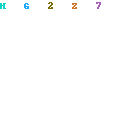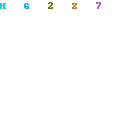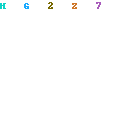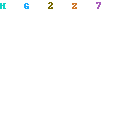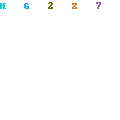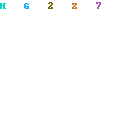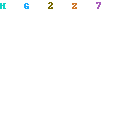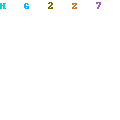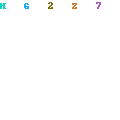WAR (Hardcover)
Sebastian Junger (Author)
List Price: $26.99 Price: $14.84 & eligible for FREE Super Saver Shipping on orders over $25.
You Save: $12.15 (45%)
Visit Books Categories for complete information about this item.
Shop n’ Buy for more Books at Pinoy eStore!
Product Description
In his breakout bestseller, The Perfect Storm, Sebastian Junger created "a wild ride that brilliantly captures the awesome power of the raging sea and the often futile attempts of humans to withstand it" (Los Angeles Times Book Review). Now, Junger turns his brilliant and empathetic eye to the reality of combat--the fear, the honor, and the trust among men in an extreme situation whose survival depends on their absolute commitment to one another. His on-the-ground account follows a single platoon through a 15-month tour of duty in the most dangerous outpost in Afghanistan's Korengal Valley. Through the experiences of these young men at war, he shows what it means to fight, to serve, and to face down mortal danger on a daily basis.
Product Details
- Amazon Sales Rank: #7 in Books
- Published on: 2010-05-11
- Released on: 2010-05-11
- Original language: English
- Number of items: 1
- Binding: Hardcover
- 304 pages
Features
- ISBN13: 9780446556248
- Condition: NEW
- Notes: Brand New from Publisher. No Remainder Mark.
Customer Reviews:
“Men Will Die for Their Friends”,
Review Date : March 4, 2010
Reviewed By : Howard Goldowsky "ChessWriter" (Boston, MA) -
This review is from: WAR (Hardcover)
Customer review from the Amazon Vine™ Program
Sebastian Junger is the well-known author of The Perfect Storm and A Death in Belmont. He is also a world-class war correspondent with over a decade of experience. This book is the product of five months spent embedded with a platoon in U.S. 2nd Battalion in the Korengal valley, Afghanistan. For five months, Junger existed like a regular soldier in the U.S. army: He ate MREs, went on patrol, took cover when the bullets started to fly. As Junger likes to explain in the book, he was the target of the same bullets as the other men in the platoon, and he had the same responsibility to Army rules. Even one broken minor rule risked lives. Junger remained vigilant, won the companionship of these soldiers, and garnered enough of their trust to record their thoughts and beliefs about what it's like to be in combat. That's what this book is about. The war in Afghanistan happened to be just a convenient location to do field research. At one particular scary moment, Junger was in a Hummer that got hit by a roadside bomb. The bomb exploded under the engine block, ten feet away. The blast shook Junger's emotions for days. Needless to say, this book was almost never written.
Good thing it was. Junger provides excellent war correspondence, describing combat as a first-hand observer. Junger's prose remains apolitical, his goal to show the reader what it's like to be in battle, not make a political statement. The book is broken into three sections: "Fear," "Killing," and "Love." All three sections describe combat, but each section is loosely structured around its theme. In "Fear," Junger loosely analyzes why or why not soldiers might be afraid to fight; in "Killing" we learn why soldiers kill, how they feel about ending the life of an enemy combatant, and how they feel when one of their own receives that fate; in "Love," Junger makes an attempt to learn why soldiers would die in combat for their comrades. In fact, this section talks about bravery probably more than the first section. In one particularly long chapter, through interviews with soldiers and references to Army studies, Junger tries to figure out why one young man barely out of his teens (yes, let's not forget that these men are practically still boys) would jump on a live hand grenade. Junger's prose reads like amazing stuff.
I suspect that this book will receive mostly positive reviews, mainly for its reporting. Certainly it deserves it. But the book is not without its faults, and I'd like to point out a few. The faults are mostly literary and organizational, however, and none hampered my reading pleasure. If you're a normal guy who just wants to read about fighting, or if you loved A Perfect Storm and just want another good read, then you'll probably not notice or care about these little problems. Without reservation, buy this book. If you're more literary minded, then maybe you'll prefer to read more this review.
Embedded with Junger was a photojournalist named Tim Hetherington. Between them they shot over 150 hours of video, which was made into a recently released documentary called "Restrepo." (This name comes from the name of a fallen American soldier and the name of an important military outpost in the Korengal valley where Second Platoon spent a lot of their time.) Some (not all) of the combat scenes in the book read like he was watching video, and describing what he saw. This is not bad, but the strength of prose over video is that a writer can slow down time and stretch emotionally charged moments into pages. The writer can dig deep into the thoughts of his characters or himself, set up suspense, tackle fear, do whatever it takes. The best parts of the book are when Junger writes about his emotions and other fighters' emotions, when he writes philosophical about combat, and how he and the soldiers cope with the combat (conveniently recounted a few pages earlier). Much of the philosophy and memoir-style introspection jumps back and forth with combat scenes. Rarely do I recommend that a book be 50 to 100 pages longer, but I wish this book was. I wish that Junger combined his introspective musings and thought provoking observations, while he was describing the action. This type of writing style would have slowed down some of his action scenes and made his writing perfect. As it is, it's pretty good already.
The one other minor complaint I had about the book was organizational. Chapter One describes a very specific start date for Junger's embedment (Spring 2007), but then in subsequent chapters I got a little confused about the chronology. Besides a few references to the heat or snow, it was difficult to get a feel for the exact chronology. Not that it matters too much -- this book is about fighting, and to the men stuck at outpost Restrepo, in the mountains of Afghanistan, far away from home, both physically and emotionally, it doesn't really matter what part of the year it is. Maybe Junger was trying to convey this.
The book has an extensive bibliography that includes up-to-date literature on killing and combat. Junger spends some time philosophizing about fighting, killing, and cognitive processes during battle, and he backs up his writing with multiple studies. PTSD and other "mental casualties" are acknowledged, as well.
Not only does WAR try to describe what it's like to be in combat, but it makes a serious attempt to try and figure out why men actually enjoy it. (Yes, believe it or not, my feeling by the end of the book was that these men do.) Towards the end of the book, Junger provides a neurological explanation: "The dopamine reward system exists in both sexes but is stronger in men, and as a result, men are far more likely to become obsessively involved in such things as hunting, gambling, computer games, and war. When the men of Second Platoon were moping around the outpost hoping for a firefight it was because, among other things, they weren't getting their accustomed dose of endorphins and dopamine." Then there is the sociological perspective. The men profiled in this book did not necessariily join the Army to die for thie country (although some do). Above all, it's the strong personal bonds, almost love, between young men who have been through challenging training and hardship, drive much of what takes place in war -- courage, bravery, willingness to die -- it all comes down to personal bonds. Men will die for their friends.
“Fighting in the graveyard of empires...”,
Review Date : March 8, 2010
Reviewed By : John P. Jones III (Albuquerque, NM, USA) -
This review is from: WAR (Hardcover)
Customer review from the Amazon Vine™ Program
...with no light at the end of the proverbial tunnel.
America is entering its 10th year of war in Afghanistan, and Sebastian Junger has written the most essential book on the actual fighting in this forever war. He is the author of The Perfect Storm: A True Story of Men Against the Sea an expression that has now entered the American language; I've read it, and think it is truly excellent. Thus, when I saw this offering via the Vine Newsletter I had no hesitation in hitting the "send me a copy" button. And I was not disappointed, since Junger, "walked the walk," a rarity for journalists who prefer to "talk the talk." Junger, at the age of 45, though not required to carry the same loads, kept pace with the soldiers half his age in the rugged terrain of the Korengal valley; on a global scale, a postage stamp size place 10 km by 10 km, east of Kabul, near the border with Pakistan. As he said about one of the bases he was on: "The base is a dusty scrap of steep ground surrounded by timber walls and sandbags, one of the smallest, most fragile capillaries in a vascular system that pumps American influence around the world. Two Americans have already lost their lives defending it." The author ate the same food, slept in the same vermin-infested bunkers, and walked the patrols with the "grunts," and definitely took the "in-coming" with them. He did this over a 4-5 month period, between June, 2007 and June, 2008. It was the ultimate determinate--dump blind luck--and in his case, of the 10 foot variety, that permitted him to live long enough to write this book.
Junger's book is NOT a description of the typical experience for troops in Afghanistan (or Iraq, now, for that matter.) He placed himself literally and metaphorically "on the cutting edge" of the combat experience. "Nearly a fifth of the combat experienced by the 70,000 NATO troops in Afghanistan is being fought by the 150 men of Battle Company. Seventy percent of the bombs dropped in Afghanistan are dropped in and around the Korengal Valley" (p 55). (Battle Company is part of a 600-man battalion called "The Rock," in the 173rd Airborne Brigade.) Junger forms friendships with the men who routinely protect his life, and as he says: "Pure objectivity--difficult enough while covering a city council meeting--isn't remotely possible in a war; bonding with the men around you is the least of your problems." He has also done a fair degree of academic research, which is referenced, as to why soldiers fight - no surprises here; they fight for their "buddies." The author has some excellent descriptive passages on the clinical aspects of that tremendous "rush" that one can receive while in combat, and why it can literally be addictive.
For the last four months of 1968 my unit was "op conned" (military lingo for "under the operational control of") the 173rd Airborne, when it was based out of LZ English, in northern Binh Dinh province. Thus, I experienced some affinity in the read. Is Afghanistan Vietnam redux, as so many right-wing think tanks proclaimed when it was the Russians who were fighting the Afghans? Junger does not mention Vietnam much, and I would have appreciated a "differential diagnosis." Clearly airborne troops who have volunteered for military service are more `gung-ho' than reluctant conscripts, and perhaps less interested in the "bigger issues" of the war; which suits the "brass" just fine. When the men in a unit all train together, and deploy together, there is a far higher degree of cohesion; of being willing to die for your buddy; but the downside, which Junger briefly describes, is when a year's worth of combat experience transfers out at the same time, to be replaced entirely by a unit of "cherries."
One of the central issues in all wars is censorship, truth famously being the first casualty. Junger perhaps describes his own book inadvertently, when he says: "The public affairs guys on those bases offered the press a certain vision of the war, and that vision wasn't "wrong," it just seemed amazingly incomplete... I thought of those as `Vietnam moments.' A Vietnam moment was one in which you weren't so much getting lied to as getting asked to participate in a kind of collective wishful thinking (p 132). On the next page he says: "Once at a dinner party back home I was asked, with a kind of knowing wink, how much the military had `censored' my reporting. I answered that I'd never been censored at all..."
I wasn't at a dinner party, and I didn't wink, but I was in a van rolling down Highway 1, on my first return to Vietnam, in 1994, when I had the opportunity to ask one of the "big name" journalists of that war the same question. He huffily replied that he had never been censored. I gently probed, OK, maybe not "censored," but how about not reporting a story that "was too hot to handle." Again I received a `negative', and so, perhaps uncharitably, since his wife and daughter were also in the van, I reminded him of some of things we didn't talk about. He grudgingly "surrendered."
After "The Perfect Storm" there were a couple of people who would not speak to Junger, because of his portrayal of some individuals, none of whom he had known prior to the event. You don't have the sense the same will be true of this book; as he states in the introduction, he did share sections with the men involved to "make sure they are comfortable with what I wrote." Much of the book is the combat, the "exciting" part of war; but what of the non-combat; the boredom of not being attacked for weeks? It is discussed somewhat, but the solace of alcohol is only briefly mentioned, and of hash, never. Can this be true? Also missing were some of the other "universal themes" of war, at least for front line troops, which were depicted in classic accounts of combat, such as Erich Maria Remarque's All Quiet on the Western Front (Bloom's Modern Critical Interpretations) Specifically, the dangerous, mind-numbing incompetence of some of the officers, and the enormous disconnect with the civilians on the home front who are "criminally" indifferent to the experience and fate of the grunts. Also, Junger says there were no "comfort women" (to use that term we seem to reserve for Japanese WW II use of Korean women) in the Korengal, and that may actually be true, though Bernard Fall reports of them at Dien Bien Phu, and they were generally at even remote fire bases in Vietnam during the American deployment. Are they anywhere in Afghanistan? Like the "secret" bombing of Cambodia, THEY know, it is only the home town folks who are kept in the dark. But the ultimate in "you don't want to go there" was covered by one sentence: "The men know Pakistan is the root of the entire war, and that is just about the only topic they get political about." In Vietnam we knew the origins the weapons that the NVA and the VC were using: Red China and the Soviet Union. But where is all the weaponry and ammunition coming from for the "Anti-Coalition forces"? Who makes it, and how does it get there? After all, Pakistan is an ally of the United States, and a beneficiary of billions in financial aid.
e.e. cummings visited this issue, concerning the "Good War," WW II, with his poem about American soldiers being killed by pieces of the 6th Street El, a reference to the scrape iron the US sold the Japanese just before the commencement of the war. Time for a re-visit?
My nephew is in the Marines; and departs for deployment in Afghanistan's Helmund Province today. He will be in a vastly different area that the one depicted in the book, though the foe will be similarly ill-defined. He is under no illusions about the war, and hopes to make it the 8 months to the end of his enlistment. But will his children, and my grandchildren be given the opportunity to fight in this graveyard of empires? Will we be able to afford this opportunity? I disagree with Colonel Ostlund's assessment (p 171): on economic arguments, we lose - we simply cannot afford endless war.
One of the best books on war written by a journalist; a solid 5-stars for what is included, all of which was meticulously fact-checked. It is the "blue pencil" omissions, the topics "too hot to handle" that cost it a star.
Update: On April 14, the New York Times (as well as others) ran an article stating that all US Forces would be abandoning the Korengal valley. Another impossibly remote outpost, like LZ English, in northern Binh Dinh province, that was not really necessary for the security of the United States, and whose ownership was returned to the people who lived there.
Plus ca change... plus la meme chose.
- JPJ
“One of the best books ever written on what it means to be in battle”,
Review Date : March 3, 2010
Reviewed By : Michael J Edelman (Huntington Woods, MI USA) -
This review is from: WAR (Hardcover)
Customer review from the Amazon Vine™ Program
There aren't many books that really tell the reader what it means to be in battle. Those that have been there don't feel comfortable trying to explain it to those that haven't. As more than one combat veteran has told me, "you just wouldn't understand." Most reporters, even those embedded in a war, haven't really experienced what it means to bean active participant in battle- trying to kill someone before he kills you. There are some very good books about what it's like to be in the middle of a war, like Bernard Fall's Hell in a Very Small Place; Fall was a French reporter who was there at the siege of Dien Bien Phu. But even though Fall could describe what it felt like to survive the incessant shelling and attack on the base, he wasn't a combatant. He was still a reporter, an observer.
Sebastian Junger is a writer of rare skill who can paint a frighteningly real picture of places few of us would ever think of going. His first book, The Perfect Storm, gave readers a taste of what it would be like to be on a doomed fishing boat in the North Atlantic, at from home, at the mercy of the sea. In War, he takes the reader to an Army outpost in Afghanistan, where Junger and filmmaker Tim Hetherington spent five months over the course of a year and a half with a platoon of young soldiers, fighting a war that we've all read about, but that few of us can imagine.
This isn't the tourist war reporting we're used to, where the embedded reporter rides along at the rear of an armored column; Junger puts himself in a situation where he runs all the risks of the soldiers he's reporting on, including getting blown up by an IED that is detonated under the Humvee he's riding in. He manages to survive only because the Taliban soldier triggering the bomb pushed the button a fraction of a second too soon, and the blast is absorbed by the engine rather than the men riding in the Humvee. We're with Junger- and the soldiers of the platoon- as they go on a night time patrol, walk into an ambush, and fight off an assault that nearly overruns their little camp.
Junger does not moralize on the war itself; as he explains, to do so would distance him from the men he's writing about, who aren't terribly concerned with politics or the geopolitics of the war. They're concerned with only one thing- survival- which means killing the man out there before he kills you. Isolated in mountainous terrain, with air support a good hour away, the men of Second Platoon, Battle Company, have to rely entirely on one another. Each man knows that every other man in his platoon will (and often do) die for him- otherwise there's no way they could survive where they are. War is full of stories of what seem like astounding heroism in the face of deadly fire- but what are to then men of the platoon, simply what they do. As one solider puts it, going out there to this lonely outpost is what takes bravery; everything after that is just doing your job.
Junger goes into some detail asking the question of why men willingly go into battle and sacrifice their lives for each other, quoting studies from WWII through the Gulf War. There's a good deal of interesting data and hypothesis, such as the curious fact that the largest sustainable hunter-gatherer community is about the size of a platoon- anything larger, and things like self-sacrifice and acting for the good of the community appear to break down. Or that chimpanzees, with whom we share 99% of our DNA, don't exhibit the same kind of self-sacrifice we see in humans. When neighboring groups attack a smaller, weaker group, they don't band together for aid- instead, those who can run away, leaving the slower and weaker chimps at the mercy of the invaders. Self-sacrifice in battle is a uniquely human behavior.
What it comes down to in the end is that soldiers do it out of love for their fellow soldier. As one remarks to Junger, who asked why he says he'd throw himself on a grenade to protect his squad, "Because I actually love my brothers... Being able to save their lives so that they can live is rewarding. Any of them would do it for me."
